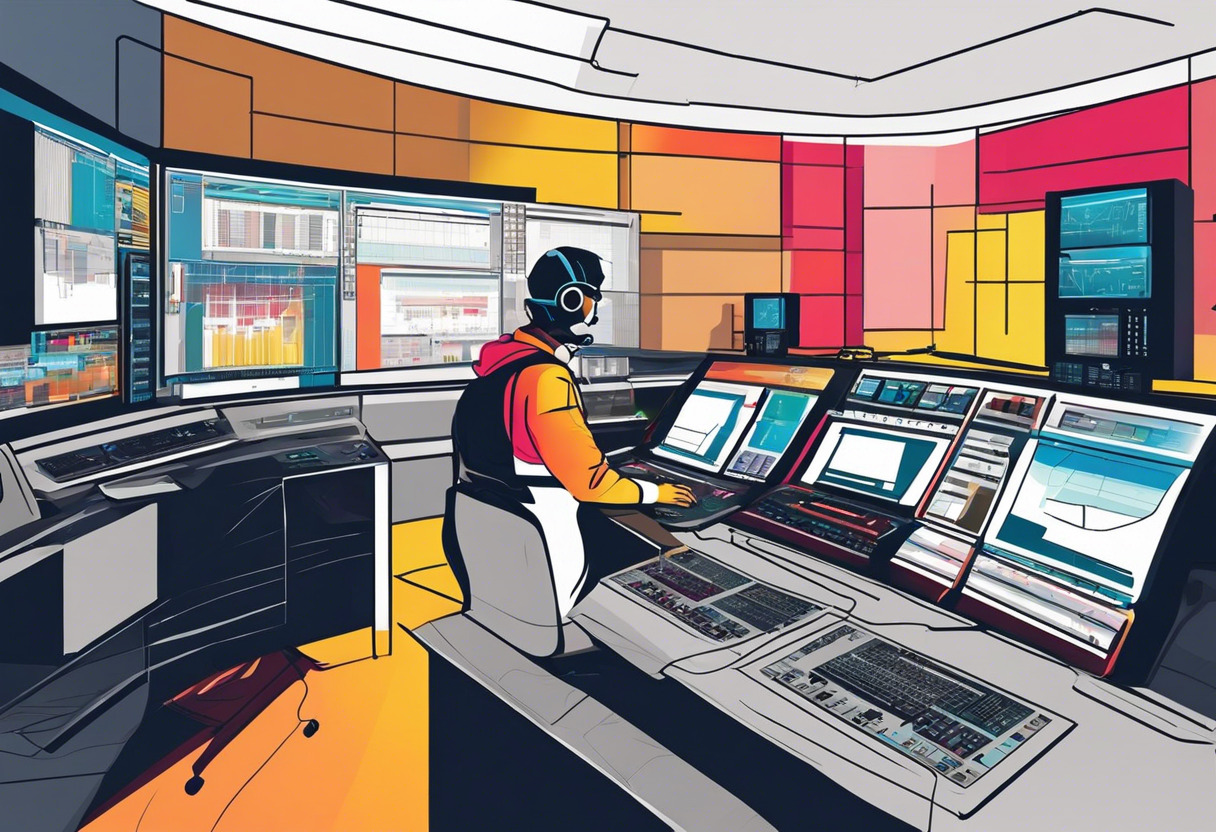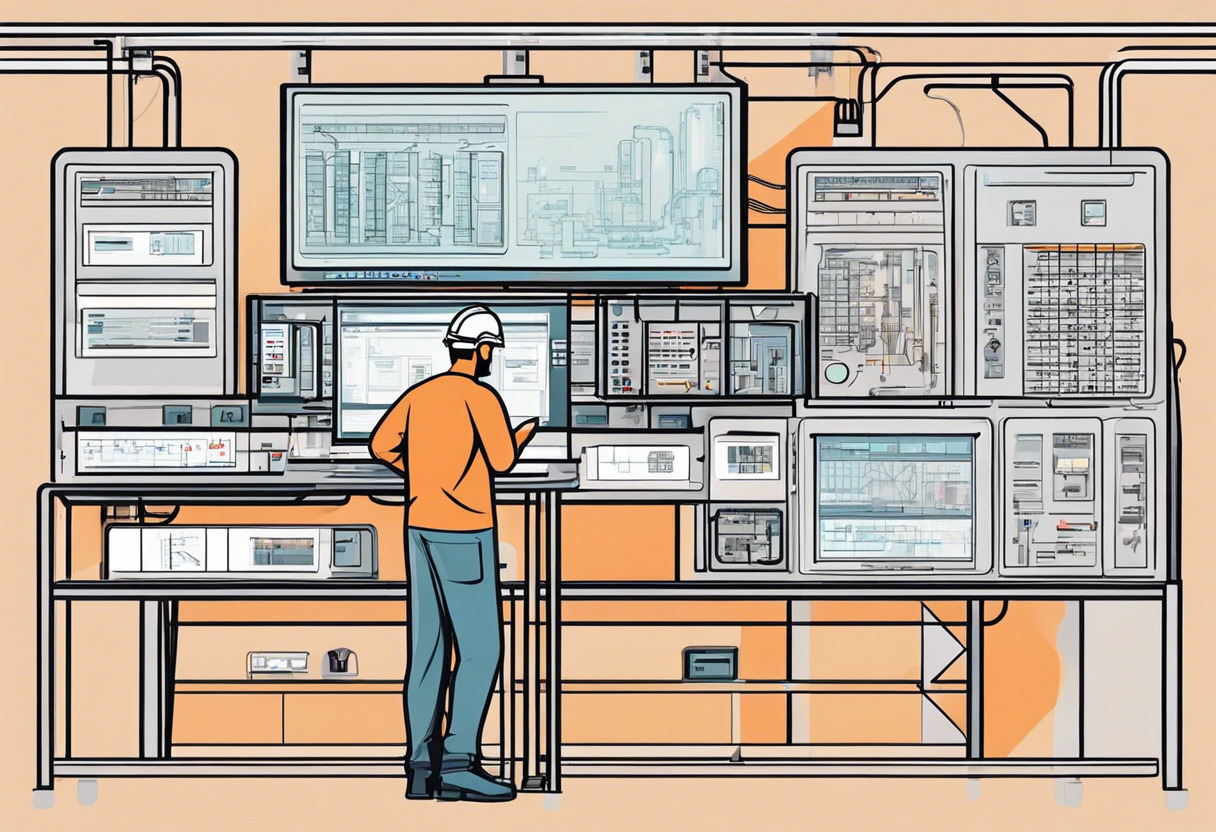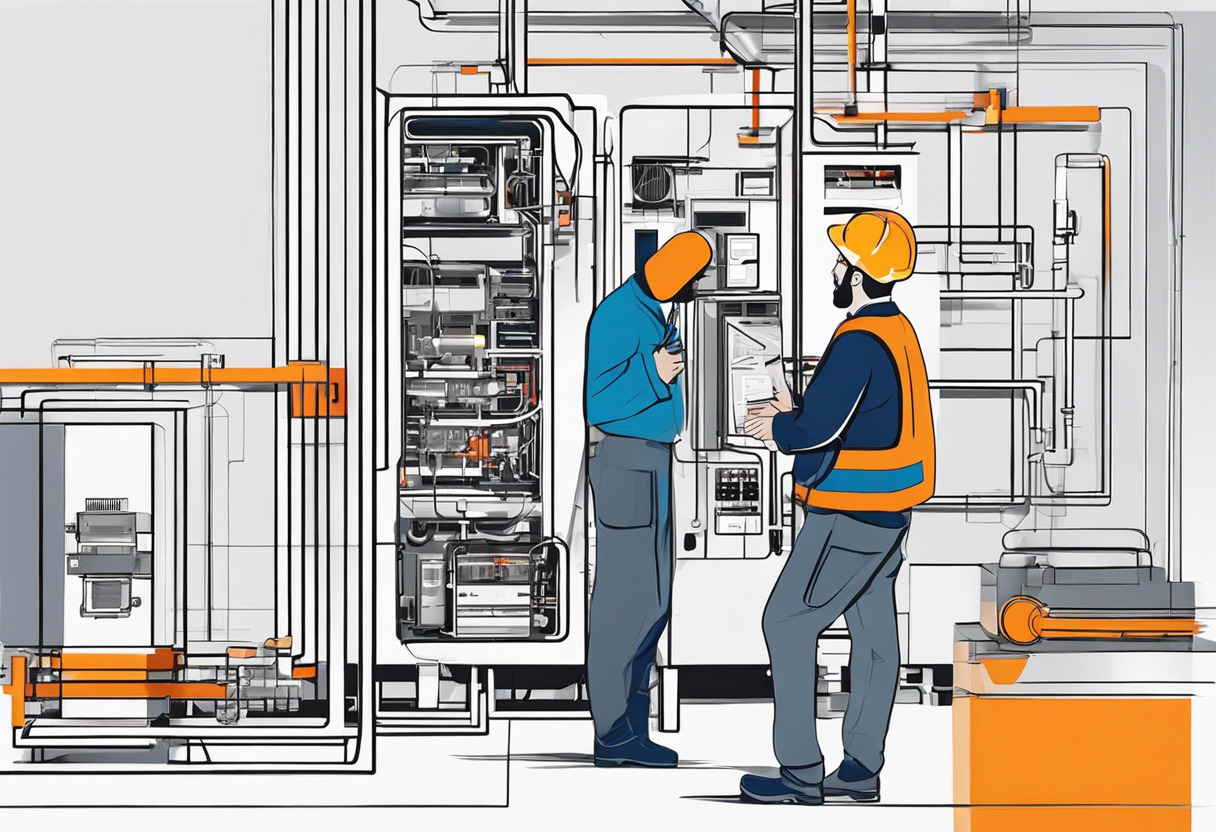For complex, large-scale industries such as oil and gas refining or telecom, SCADA provides a robust system for controlling processes and gathering data systematically. However, for buildings wanting integrated, energy-efficient management of heating, lighting and security, BAS shines as the superior technology.

Key Differences Between SCADA and BAS
- Origins and Evolution: SCADA excels in innovative industrial applications, whilst BAS has driven HVAC advancements right from the 1600s.
- Scope of Use: SCADA operates in large-scale industrial domains, whereas BAS finds extensive use in building management.
- Components: Both employ controllers and sensors, but SCADA uses RTUs while BAS leverages HVAC controls.
- Communication: SCADA protocols are Ethernet or IP-based, BAS primarily uses BACnet.
- Cybersecurity: SCADA, due to larger connectivity, confronts more cybersecurity risks.
- Future Directions: SCADA eyes 5G and quantum computing; BAS focuses on enhanced interoperability and energy efficiency.
| Comparison | SCADA | Building Automation Systems (BAS) |
|---|---|---|
| Application | Monitor and control complex industrial processes | Controlling and monitoring machinery and systems in buildings |
| Components | Remote Terminal Unit (RTU), sensors, control relays, SCADA master units, communication channels | Thermostat, pneumatic systems, PID controllers, digital controls |
| Technology Evolution | From monolithic to distributed and networked systems, Future incorporations include 5G, Quantum Computing, AI and ML | Transitioned from pneumatic to direct digital controls due to cheaper, more accessible computers, Will incorporate highly interoperable control frameworks |
| Interoperability | Modern SCADA are scalable, interoperable, Supported by rapid application development (RAD), Legacy SCADA systems have limited support | Highly interoperable due to BACnet and Niagara-based control frameworks |
| Market significance | Used in energy sectors, food and beverages, manufacturing, oil and gas, power, recycling, transportation, water and waste water | Green buildings incorporating BAS for energy, air and water conservation, BAS market expected to reach $100.6 billion by 2022, growing at a CAGR of 10.65% |
What Is SCADA and Who’s It For?
SCADA (Supervisory Control And Data Acquisition) stands as a computer application designed for the control and monitoring of plants or equipment at a supervisory level. This centralized monitor and control system elevates automating complex industrial processes to a new height by measuring trends over time, detecting and rectifying problems. Dive into SCADA if you’re a part of industries like water and waste control, energy, oil, gas refining, transportation, telecom, and more.

Pros of SCADA
- Efficient and secure monitoring
- Automates complex industrial processes
- Multi-industry application
- Potential future incorporation of cutting-edge technology
Cons of SCADA
- Cybersecurity concerns with integrated systems
- Legacy systems lack modern features, limited support options
What Is BAS and Who’s It For?
True to its historic roots dating back to the 1600s, Building Automation Systems (BAS) have reformed the way we control and manage building systems. Its realm spans from HVAC controls to lighting, ventilation to security systems. If you’re a building manager, designer, or engineer seeking energy, air, and water conservation or a smoother operation of various subsystems, BAS is your tech beacon.

Pros of BAS
- Interoperability and integration of multiple systems
- Energy, air, and water conservation
- Enhanced security and malfunction alert features
Cons of BAS
- Improper configuration can lead to significant energy waste
- Independent operation of subsystems in traditional buildings
Which Prevails: SCADA or BAS?
Postponing the suspense, let’s carve a definitive line between SCADA and BAS for distinct audience sectors.
Industrial Automation Architects
SCADA emerges victorious for those engrossed in daunting industrial processes. With its complicated control mechanisms, effective problem detection/correction, and trends measurement, SCADA leads the analysis game. Flip-side, with RTUs and PLCs dictating site control, investment-wise, it’s no bed of roses.

Infrastructure Builders
BAS is your tool of choice. Pulsating since the 1600s, for those overseeing edifice projects, with its energy, air, and water conservation, BAS is a trump card. Unignored, improper configuration can result in energy wastage. However, modern BAS ensuring optimal climate and security comes to the rescue.

Future-forward Tech Innovators
Adopt SCADA if you’re yearning for a future enriched with 5G, quantum computing, AI, and machine learning. A warning bell rings with cybersecurity concerns but counterbalanced with the promise of improved accessibility and enhanced control of data.

Green Tech Advocates
For champions of environmental solutions, the decisive winner is, unquestionably, BAS. From energy conservation to controlling heating, lighting, security, it paves the way for ecologically conscious architecture.

Innovative HVAC Specialists
With the advent of BAS for managing heating, lighting, and security seamlessly, HVAC specialists can relish the luxuries of an efficient, interoperable system catering to contemporary needs.

In the SCADA vs BAS nexus, SCADA earns the medal for industrial process automation whereas BAS triumphs in the domain of building management. The choice depends on your field’s requirements.
Hannah Stewart
Content writer @ Aircada, tech enthusiast, metaverse explorer, and coffee addict. Weaving stories in digital realms.





